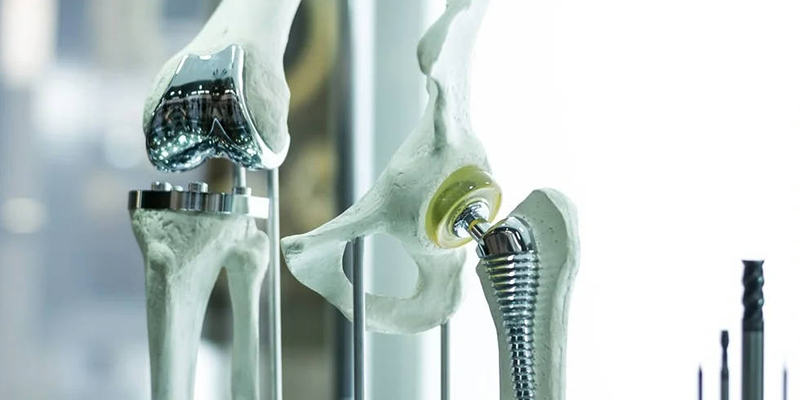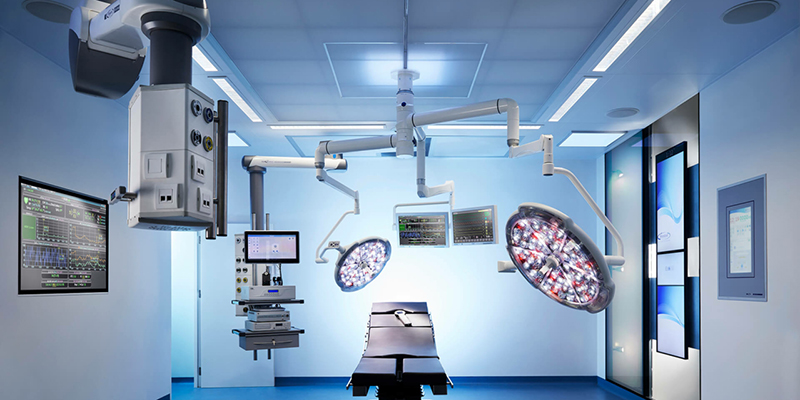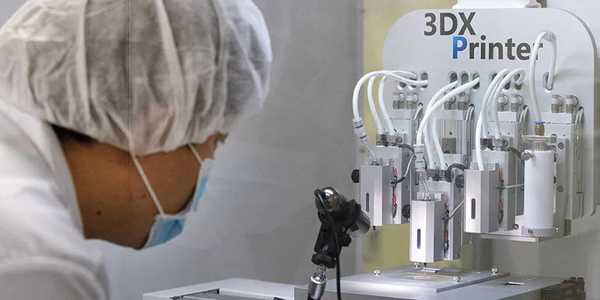The Role Of Biodegradable Implants In Modern Surgery
Within the vanguard of contemporary surgical praxis, biodegradable medical implants have materialized as an epochal advancement, epitomizing a confluence of ingenuity and ecological foresight. These meticulously contrived implants are engineered to undergo auto disintegration within the somatic environment after fulfilling their designated role, thereby preventing the necessity for redundant surgical extraction. The implementation of biodegradable medical implants not only amplifies patient convalescence and diminishes iatrogenic hazards but also harmonizes with the escalating imperative for eco-friendly surgery solutions.
Advantages Of Biodegradable Medical Implants
Biodegradable medical implants proffer a panoply of advantages over their traditional counterparts:
- Attenuated Surgical Interventions: Unlike perennial implants, biodegradable medical implants gradually resorption within the human matrix, nullifying the necessity for subsequent surgical excisions. This diminution in surgical recidivism concomitantly mitigates patient trauma and fiscal encumbrances.

- Augmentation of Autogenous Healing Processes: These implants are congruent with the organism’s intrinsic reparative mechanisms by provisionally bolstering structural integrity and facilitating a phased biomechanical load transference onto the regenerating tissue as the implant degrades.
- Mitigated Long-Term Contingencies: Conventional implants are often fraught with the potential for enduring complications, including septicemia and immunogenic rejections. Conversely, biodegradable medical implants abrogate these perils through their eventual dissolution, leaving no residual xenobiotic matter.
- Tailored Resorption Kinetics: The temporal biosorption of biodegradable medical implants can be meticulously tuned to coincide with the patient's reparative timeline, ensuring optimal structural support throughout the recovery trajectory.
Eco-Friendly Surgery Solutions
An exigency impels the paradigm shift towards eco-friendly surgery solutions to attenuate the ecological footprint of surgical interventions. Biodegradable medical implants constitute a pivotal axis within this emergent paradigm. Traditional implants, composed of metallic and polymeric substrates, contribute to biomedical detritus and pose formidable environmental quandaries upon disposal. In stark antithesis, biodegradable medical implants undergo endogenous catabolism, leaving no vestigial waste, thereby aligning with the axioms of sustainable healthcare innovations, which prioritize the reduction of environmental impact in medical practices.
Merits Of Eco-Friendly Surgery Solutions
- Alleviation of Biomedical Detritus: The integration of biodegradable medical implants within clinical protocols can substantially curtail the quantum of biomedical waste generated by healthcare facilities.
- Abatement of Carbon Emissions: The lifecycle of conventional implants, encompassing fabrication and eventual disposal, exacerbates the carbon footprint of healthcare operations. Eco-friendly surgery solutions are instrumental in facilitating this environmental impact.
- Compliance with Environmental Mandates: As global regulatory bodies enforce increasingly stringent mandates on biomedical waste management, adopting sustainable healthcare innovations, such as biodegradable medical implants, ensures regulatory compliance and hinders the prospect of punitive actions.
Applications Of Biodegradable Medical Implants
Biodegradable medical implants are being increasingly integrated into an array of surgical interventions, including:
Orthopaedic Reconstructive Procedures: Biodegradable medical implants stabilize during the recuperative phase in osteosynthesis and ligamentous reparations. They ultimately undergo resorption to preclude long-term sequelae.
- Cardiovascular Therapeutics: Biodegradable stents fabricated from transient materials sustain arterial patency. These stents proffer structural support during the critical healing juncture and subsequently dissolve, thereby mitigating the potential for complications inherent in permanent stents.
- Craniofacial Reconstructive Surgery: Biodegradable medical implants are employed in reconstructive procedures to fortify bony and soft tissue structures, obviating the necessity for subsequent surgical extraction.
Sustainable Healthcare Innovations
The amalgamation of biodegradable medical implants within surgical practices epitomizes the quintessence of sustainable healthcare innovations. These innovations transcend the implants themselves, permeating the entire surgical ecosystem. For instance, the evolution of eco-friendly surgery solutions extends to biodegradable sutures, dressings, and ancillary surgical materials. These sustainable healthcare innovations embody a holistic approach to minimizing healthcare's environmental footprint.
Paramount Domains Of Sustainable Healthcare Innovations
Innovations Analogous to biodegradable medical implants, biodegradable sutures undergo resorption post-application, obviating the need for removal and diminishing biomedical waste.
- Ecological Operating Theatres: Surgical theatres are undergoing a metamorphosis with the incorporation of energy-efficient luminaires, robust recycling frameworks, and the utilization of sustainable materials to cultivate eco-friendly surgery solutions.

- Sustainable Medical Packaging: The packaging of medical devices and implants is being revolutionized with a shift towards biodegradable and recyclable materials, further advancing sustainable healthcare innovations.
Intricate Applications Of Biodegradable Medical Implants
The pervasive influence of biodegradable medical implants extends into the most specialized echelons of surgical disciplines, where their integration underscores a confluence of precision, patient-specific customization, and cutting-edge biocompatibility. As technological paradigms evolve, these implants are increasingly tailored for highly intricate procedures, demanding an unparalleled synthesis of innovation and physiological congruence.
- Neurosurgical Paradigms: Incorporating biodegradable medical implants within neurosurgical contexts represents a seminal shift in approaches to intracranial reparative methodologies and preventing cerebrospinal fluid (CSF) efflux. These implants undergo auto-dissolution without precipitating inflammatory sequelae, indispensable within the precarious neurovascular terrain.
- Vertebral Column Surgery Breakthroughs: In spinal arthrodesis, biodegradable medical implants serve as temporary scaffolds, endowing the vertebrae with requisite stability during osteogenesis. As physiological repair mechanisms prevail, these implants are systematically resorbed, obviating the latent risks of long-term complications, including but not limited to implant migration or biomechanical failure.
Maxillofacial Reconstructive Mastery: Within the ambit of maxillofacial surgery, biodegradable medical implants are instrumental in reconstituting both bony and soft tissue architectures. These implants not only afford structural fortification during the reparative phase but also seamlessly coalesce with autogenous tissues, thereby enhancing both aesthetic and functional outcomes post-operatively.
Emerging Constituents In Biodegradable Implants
The metamorphosis of biodegradable medical implants is inextricably linked to the advent of novel material sciences, which proffer unprecedented performance metrics and an enhanced safety profile.
- Magnesium-Derived Alloys: Pioneering research into magnesium-based alloys has culminated in the genesis of biodegradable medical implants endowed with superior mechanical robustness. These alloys exhibit an intrinsic capability for biosorption, rendering them exceptionally suited for orthopaedic and cardiovascular applications where metallic integrity is imperative, albeit transient.
- Polymeric Architectures: State-of-the-art polymeric matrices are being utilized to engineer biodegradable medical implants that recapitulate the extracellular matrix, thereby fostering cellular infiltration and tissue neogenesis. These polymers are meticulously engineered to biodegrade in synchrony with the tissue repair chronology, thereby offering a bespoke solution across a spectrum of surgical requisites.
- Bioceramic Constructs: Bioceramic substrates, lauded for their bioactive properties, are being integrated into biodegradable medical implants. These constructs facilitate osteoconduction and promote endogenous bone regeneration, rendering them invaluable within dental and orthopaedic reconstructive interventions, where structural support is paramount.
The Prospective Evolution Of Biodegradable Medical Implants
The prospective evolution of biodegradable medical implants is imbued with promise as ongoing research propels advancements in materials science, yielding implants with superior mechanical properties and more predictable biosorption kinetics. These innovations are anticipated to expand the gamut of surgical procedures amenable to biodegradable medical implants.
Conclusion
Biodegradable medical implants represent a paradigmatic leap forward in modern surgical practices, offering a safer, more ecologically sustainable alternative to traditional implants. As eco-friendly surgery solutions gain traction, the adoption of sustainable healthcare innovations will indubitably be instrumental in shaping the future landscape of healthcare. By attenuating the environmental impact of surgical interventions and enhancing patient outcomes, biodegradable medical implants are poised at the vanguard of the evolution towards a more sustainable and patient-centric healthcare paradigm.




